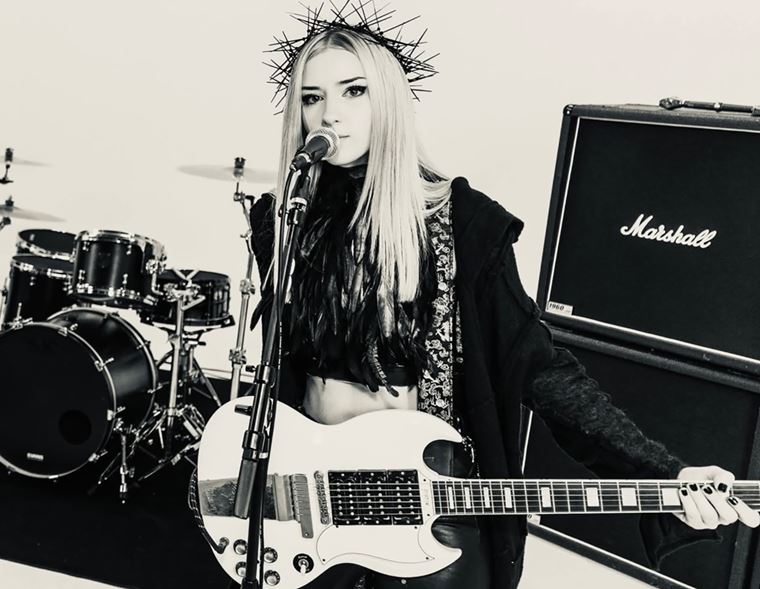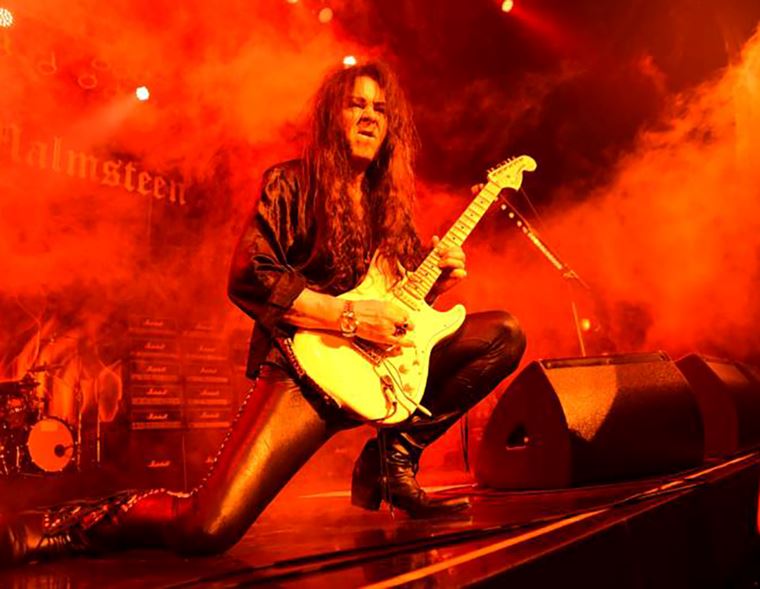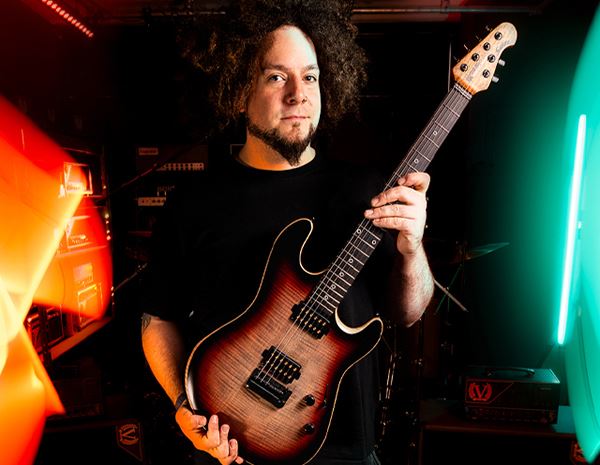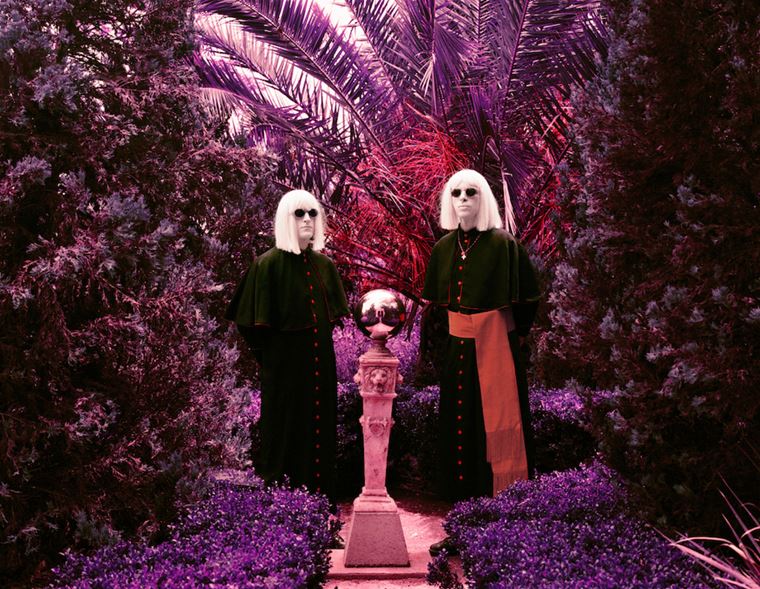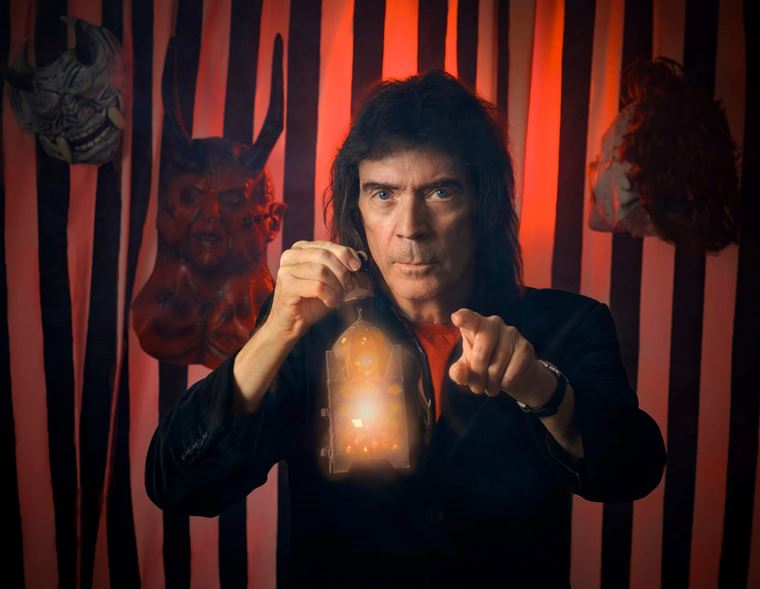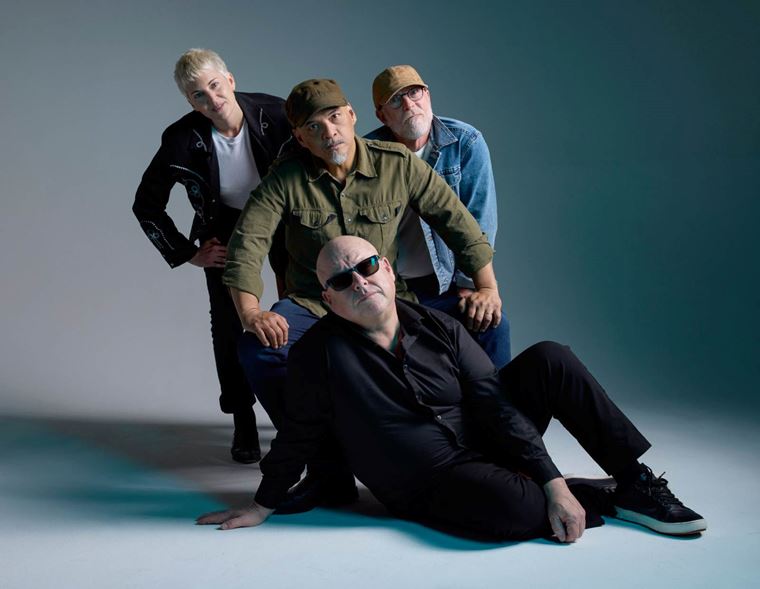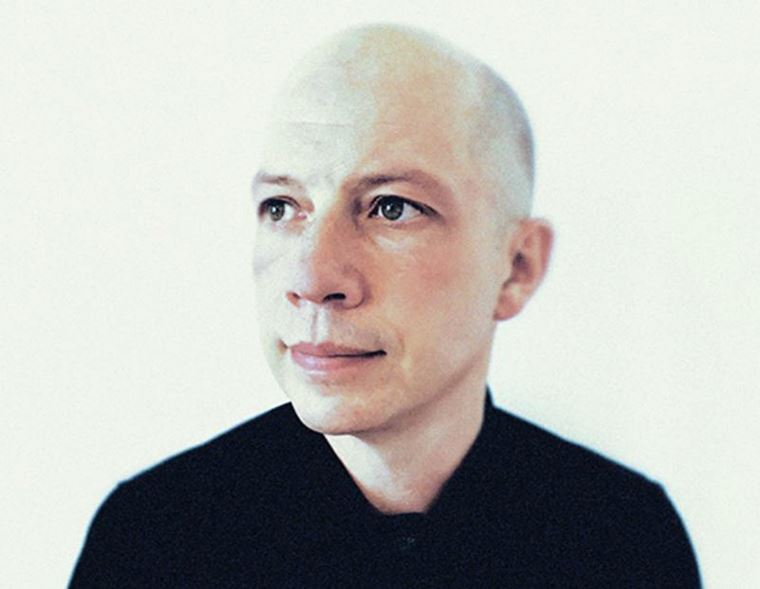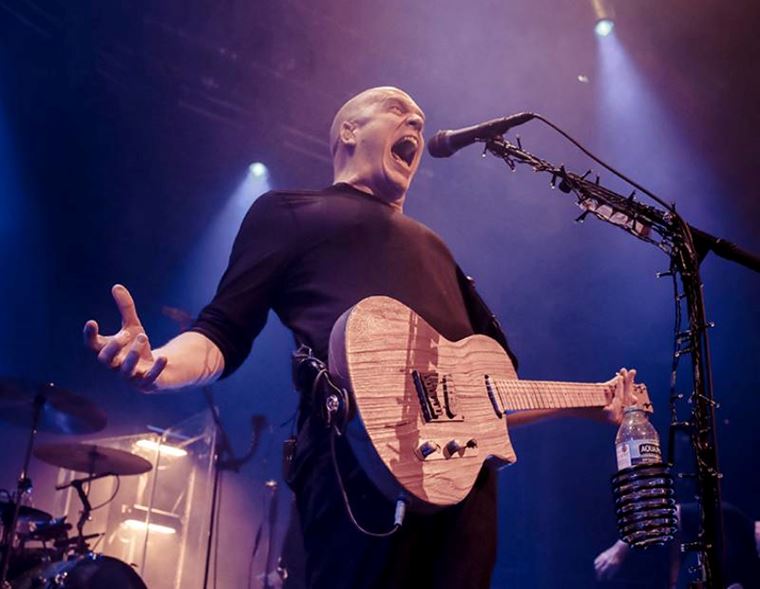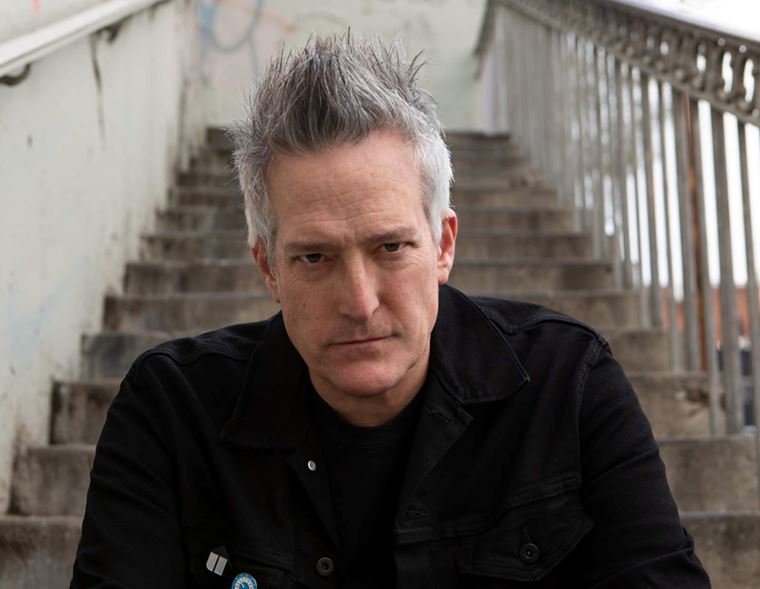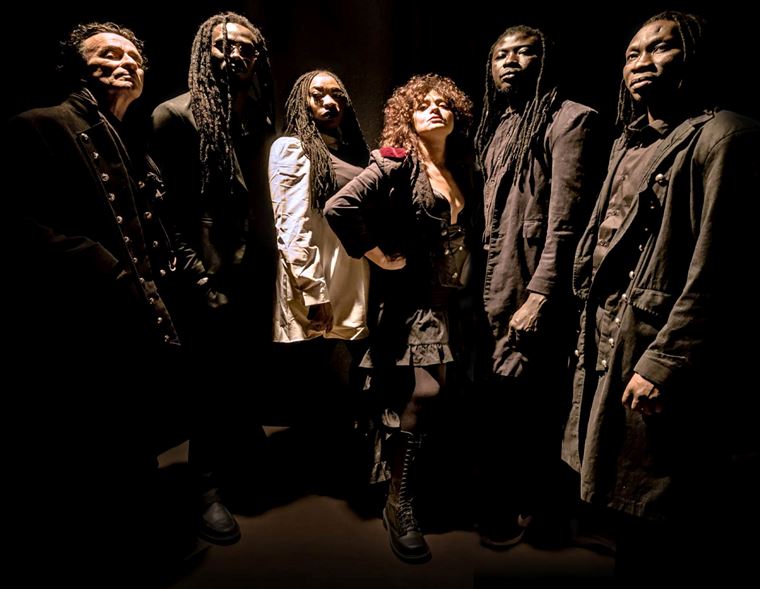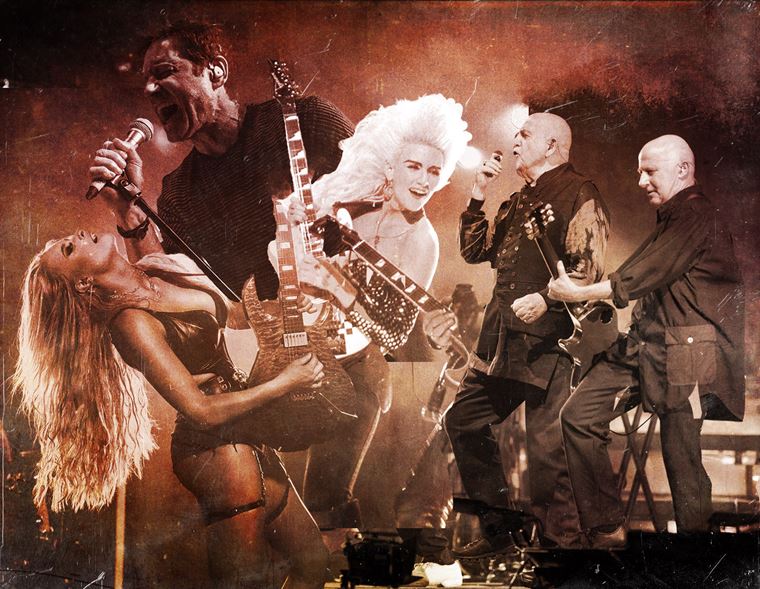The guitarguitar Interview: Guthrie Govan
Published on 13 December 2019
My introduction to Guthrie Govan was through Kurt Cobain.
Well, sort of...
Let me be more specific. As a 12 year old self-taught guitarist, 100% on my pocket money went on guitar magazines. Guitar Techniques was the one to go for if you actually wanted to learn something on the instrument and not just ogle Tiger-Top Les Pauls. Each issue came with a CD of lessons, and one in particular was about how to play Nirvana’s On a Plain, from their acoustic Unplugged in New York album.
The lesson was given by a chap with a distinctly laconic vocal delivery. His playing was impeccable and his voice was so friendly and laid-back, I found myself happily playing along, with none of the fear that a beginner player normally has.
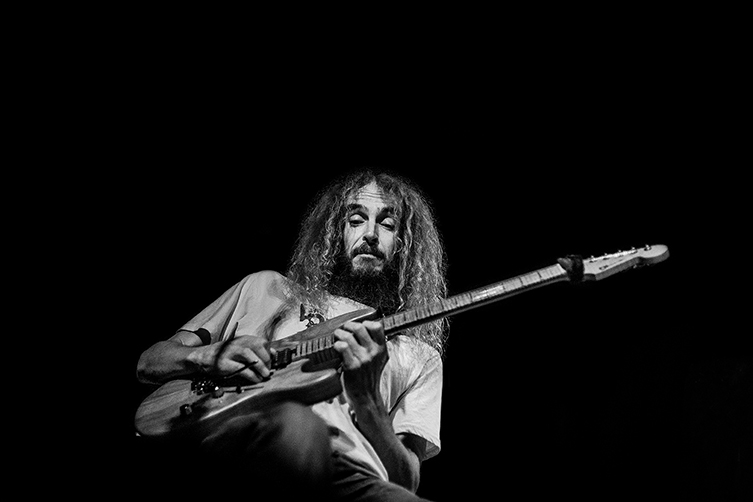
(Photo: Ekaterina Gorbacheva)
His name, of course, was Guthrie Govan, and I kept an eye out for him throughout subsequent magazine lessons. Over the years, Guthrie started to pop up in other places, not least the solo work of esteemed Porupine Tree frontman Steven Wilson. I remembered my early, somewhat one-sided lessons with Guthrie. It was good to know that, not only was he out there making music, he was quickly becoming one of the most talked-about players around!
He popped up again when I found him onstage next to Johnny Marr, playing guitar for Hollywood composer Hans Zimmer (Best gig ever? Maybe...) and online, playing with various artists. By that point, the Aristocrats were a thing, and it was all taking off: signature guitars, praise from Steve Vai...this unassuming musician had quietly become something of a modern-day legend!
It’s an accolade that is quite deserved. He is a monster of a musician. The Aristocrats, a superlative instrumental three piece made up with phenomenal drummer Marco Minnemann (Steve Hackett, Joe Satriani) and incredible bassist Bryan Beller (Deathklok, also Satriani), are tearing it up for music fans who like fusion-style music with tons of personality and energy, not to mention chops! These guys seem to be having a lot of fun, which is pretty much how it all began for them: an impromptu jam at music retail industry show Winter NAMM back in 2011 proved that there was some real chemistry between the players. Since then, they’ve done things their way, to appreciative audiences across the world.
The Aristocrats are playing in the UK next January as part of the tour they are currently on. We managed to get a quick email through the ranks to reach Guthrie somewhere in Scandinavia. He happily told us about his gear, his performances with Hans Zimmer, and the relative importance of both practice and music theory...
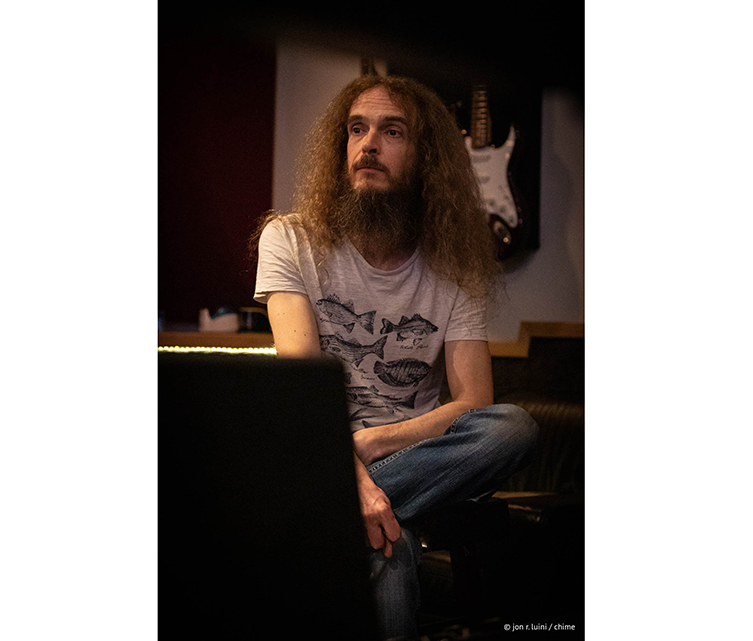
(Photo: Jon Luini)
Guitarguitar: What kind of things can you do as a member of The Aristocrats that you cannot do with your other collaborations?
Guthrie Govan: Well… essentially, I can just be "myself". Whenever I'm working with other artists (Dizzee Rascal, Asia, Steven Wilson, Hans Zimmer etc) I tend to feel that my role is to use everything I know about my instrument to help someone else realise their musical vision, whereas being in The Aristocrats is all about conveying our vision. The band is very much a democracy with regard to everything from business decisions to the writing of new material, so there really isn't a "boss" and of course this basically affords us the freedom to do whatever we like!
GG: You guys got together originally at a NAMM show for a one-off performance. Do you think a lot of any musician’s path is to just follow their intuition?
Guthrie: Whilst I don't feel entirely qualified to make generalised assertions about "any musician", that's certainly been the case in my own trajectory: the majority of my career choices have been based largely on whether something felt right or not. When The Aristocrats played that first one-off show back in 2011, I think each of us independently concluded that this particular line-up just seemed to have a rare chemistry so, as I recall, we were starting to discuss how we could make the band more of a permanent thing within mere minutes of walking off stage after that gig.
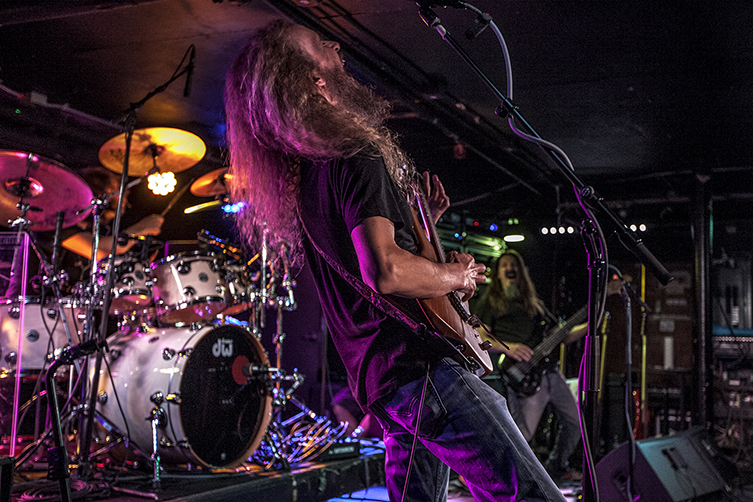
(Photo: RJ Evans)
GG: Guthrie, you’re playing is obviously technically brilliant, but it goes beyond ‘shred’ in its melodic and emotional qualities. Are these the things you work on the most?
Guthrie: Awww...kind words indeed! ;-) For me, playing guitar is just a way of communicating so I'm really not thinking consciously about what I'm doing any more than I would think consciously about English grammar whilst talking to someone - the most important thing is what you have to say. I've never specifically chosen to work on being "melodic" or "emotional" in isolation from any other musical elements - I just see them as things which should be present in everything you play. Well... I suppose I do value those qualities very much in the music I listen to, so I guess perhaps I’m prioritising them subconsciously. After all, I don't particularly enjoy hearing anyone else's playing if their only apparent message is "check out how much I've practiced this trick!" so, in much the same spirit, I wouldn't want to be that kind of player, either.
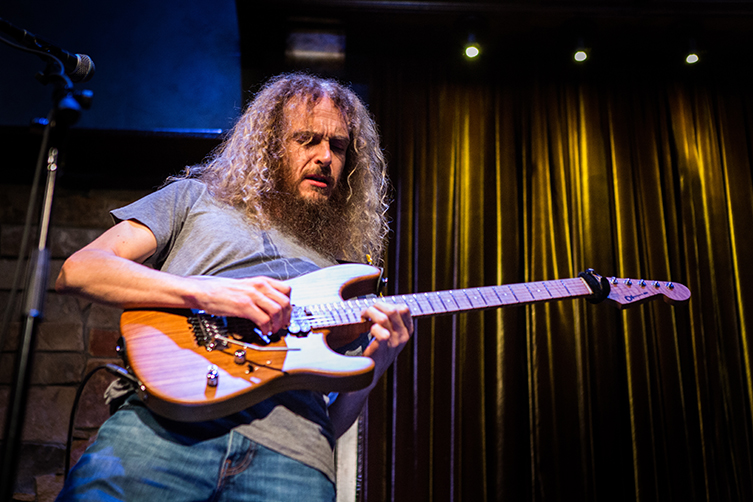
(Photo: Daniel Work)
GG: Do you think it’s important to know the Scales and Modes if a guitarist is to develop their own unique voice on the instrument?
Guthrie: It depends very much on what a particular guitarist is trying to achieve so I’m not sure that there's a single universal answer to that which could apply to all players. Someone like Albert King managed to find a totally authentic voice on the instrument without ever having to memorise any modes of the melodic minor scale whereas, at the other end of the spectrum, Allan Holdsworth clearly absorbed pretty much everything that Western music theory had to offer and still wasn't satisfied so... he ended up inventing more scales and modes of his own! Both are equally valid, in my humble opinion, but in terms of usable advice for other players... if you're not sure whether you need that level of theoretical knowledge or not, it surely can't hurt to acquire it anyway - you can never know too much ;-)
GG: What’s your current live set-up?
Guthrie: I'm using two of my Charvel signature model guitars - I have an ash-bodied one in Drop D tuning plus the original basswood/maple version in standard tuning. All of my effects come from a Fractal FX-8 (which, to address a common misconception, is not an amp modeller or an "Axe-FX" - it models effects exclusively!) Amp-wise, I'm using the Victory V30 Mk2 head, which is light and small enough to be accepted as carry-on luggage by any airline. During "van" tours such as the Aristocrats' current European jaunt, I'll travel with a Victory 2x12: for fly dates, I just do my best to hire any kind of speaker cab with Celestion Vintage 30 speakers.
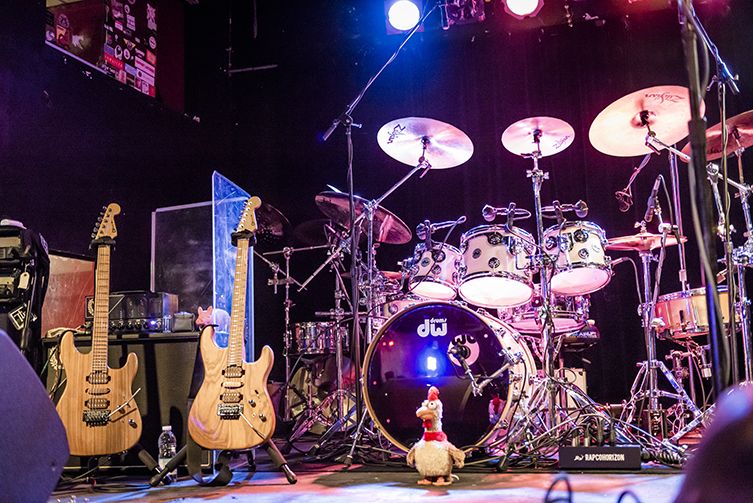
(Photo: Morgan Brown)
GG: What’s your preference for string and plectrum gauge?
Guthrie: I'm using D'Addario NYXL strings, .010-.046 gauge. (I've found that replacing the .046 for a .052 allows me set a guitar up in Drop D tuning with virtually identical string tension - perhaps useful information for players who use a floating bridge?)
Oh, and I have a signature Red Bear pick... I'm not exactly sure of the thickness but it looks to me like it must be somewhere in the 1.5-2mm range.
GG: You are one of Hollywood composer Hans Zimmer’s go-to choices for live guitar: what kind of gig is that like for a guitar player?
Guthrie: A mighty fine one! I have to admit that at first I was somewhat puzzled by Hans' invitation, as most of the music in the live set didn't feature any guitar at all in its original "movie score" form... but it gradually became clearer to me that HZ wanted to "reinvent" some of his music as he adapted it for a live performance setting, and that he was actually very open to suggestions from the musicians in his band. In my case, I found that I needed to make my own charts for virtually everything, which certainly required a degree of creative decision-making... but it was a fun process. Also, the music is great - I never seem to tire of hearing/playing it - and the band is a truly unique gathering of individuals from all kinds of different musical worlds, so we all learn a lot from each other...
GG: How does being a smaller part of a huge band with Hans Zimmer compare with playing as (effectively) the focal point of a three piece with the Aristocrats?
Guthrie: Well, I'd like to think that there are in fact three focal points in the Aristocrats: we're very much trying to be a "real band", rather than a "guitarist + rhythm section" kind of affair, and everyone certainly has something to say in this line-up! I suppose the main difference is that there's more scope for musical spontaneity in a trio format: at any given moment, each player can be fully aware of what the other two are doing so we can experiment and interact in unpredictable ways which would almost certainly lead to a "train wreck" in a more heavily populated line-up such as Hans' band. Having said that, I really do enjoy the experience of playing in a larger ensemble featuring a bunch of orchestral instruments - there's nothing quite like it!
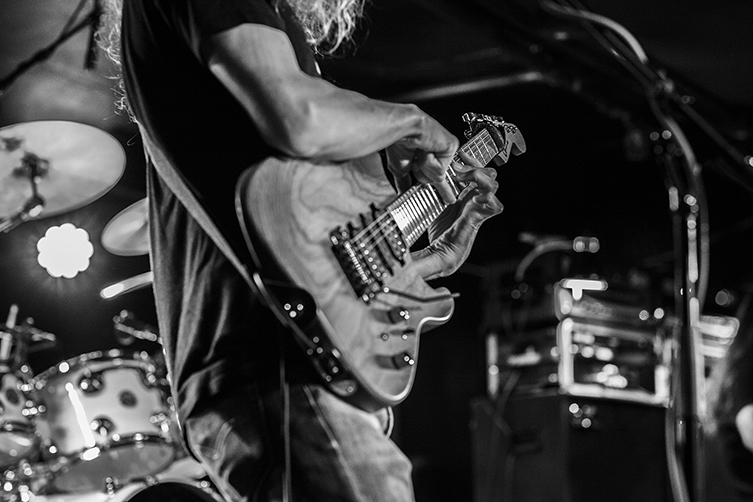
(Photo: RJ Evans)
GG: Do you have to change your backline on the Zimmer tours due to the number of musicians on stage versus volume?
Guthrie: Indeed! Everyone in that band is using in-ear monitors and I actually play through a Kemper (as do various other members of the band) to avoid any issues with my sound spilling into the orchestral mics.
GG: There’s a pretty famous YouTube video of you playing (Rage Against the Machine song) Bulls on Parade with Dizzee Rascal. There’s some wild playing on there! Firstly, how did that one come about? And secondly, was Dizzee happy to let you do what you wanted on that performance?
Guthrie: That connection came about through Hal Ritson, from the Young Punx. I've known (and played with) Hal ever since our university days - he's always been a very versatile musician and producer but his career path somehow led him towards the field of dance music, where I suppose he became established as the guy who had the most connections with "real instrument" musicians. Hal had a company which specialised in sample replays and I would often work on the guitar/bass parts for those assignments... one of which turned out to be for Dizzee Rascal's Tongue In Cheek album. Some time later, when the BBC invited Dizzee to put a band together for The Electric Proms, I guess approaching Hal was just the most obvious solution... and then of course Hal called me.
As it seemed to me, the experience of working with a more traditional live band was entirely new to Dizzee and for the most part he seemed to find it all very exciting and inspiring. Having said that, Hal was very much acting as the MD for that gig so the band would work on an arrangement under his guidance and then present it to Dizzee for final approval (or otherwise!)
GG: Another incredible piece of Govan guitar playing is on Steven Wilson’s song Drive Home. Was this part written in advance or improvised? It kind of sounds like both...
Guthrie: That ending solo was totally improvised... on a guitar which I'd never played before, oddly enough. Someone had sent Steven a Jazzmaster-style guitar with a Sustainer pickup and he asked me what I thought of it... with the result that I ended up using it for Drive Home. I insisted on doing a few more takes (at least partially to familiarise myself more with that Sustainer pickup!) but everyone seemed particularly attached to the first take so that's the one which you hear on the album.
GG: Do you still practice a lot?
Guthrie: I actually don't... but I do spend a fair amount of time gigging and recording so I suppose that helps to maintain the required degree of muscle memory and such like.
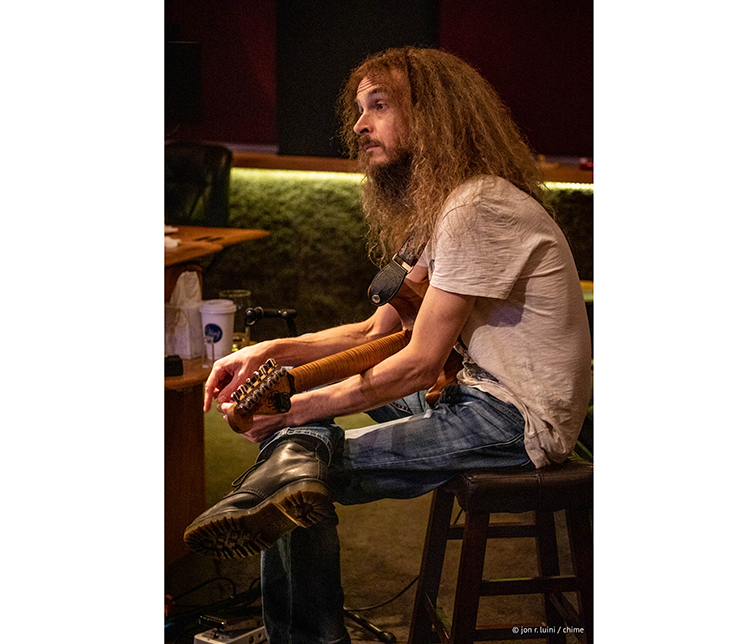
(Photo: Jon Luini)
GG: Did you find that being a guitar teacher taught you a lot about your own playing?
Guthrie: It did indeed… I’m completely self-taught (unless you count the handful of open chord shapes which my dad showed me way back in the day!) and I think I developed a lot of my playing technique simply on the basis of whatever felt the most natural - not the easiest thing to explain helpfully to another player! - so teaching definitely forced me to examine some of the things I do from a fresh perspective.
GG: It’s been a while since Erotic Cakes: any plans for another solo record?
Guthrie: One of these days, I'm sure it will happen... but I honestly have no idea when.
GG: Steve Vai says that you are one of the best guitarists ever. How does that kind of statement make you feel?
Guthrie: As you can doubtless imagine, my inner teenager is very happy indeed about that comment - Steve was a huge inspiration for me!
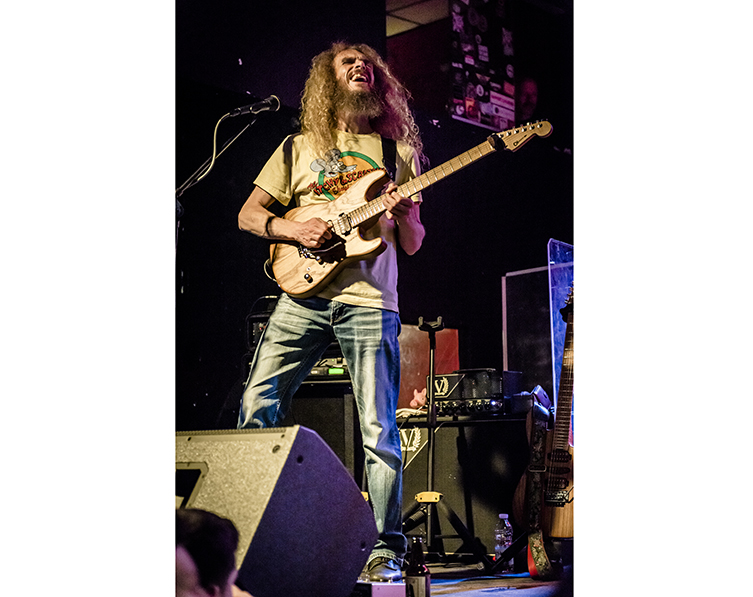
(Photo: Morgan Brown)
GG: Finally, the gun is pointed at your head and you have to choose: who are your three all-time favourite musicians?
Guthrie: That’s a tough one! Right now, without overthinking it, I guess I’ll go with:
1) Frank Zappa
2) Stevie Wonder
3) Whoever is holding the gun ;-)
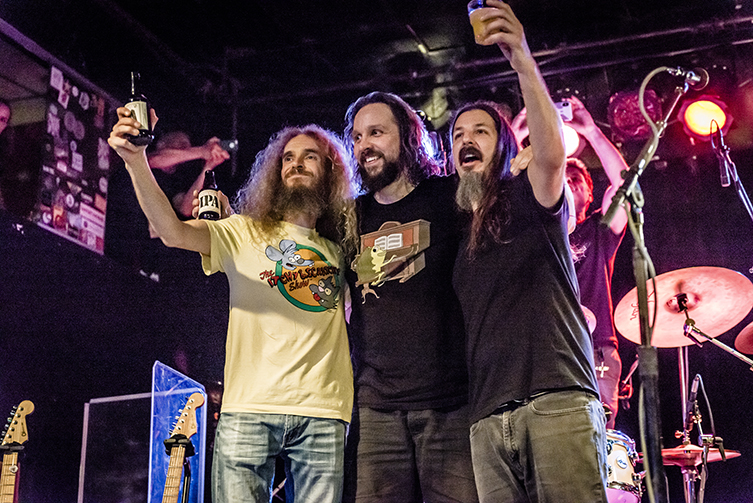
(Photo: Morgan Brown)
Now, those are some great answers! The immensely talented Aristocrats are on tour all over the place at the moment, with UK gigs in January 2020. Buy tickets to the Edinburgh show on 22nd right here! Keep up with the guys on the Aristocrats website.
We’d like to thank Guthrie for talking some time out mid-tour to take part in this interview. We’d also like to thank Rhiannon Jenkins for all of her help in setting us up with Guthrie.
As always, thanks for reading.
Until next time,
Ray McClelland


